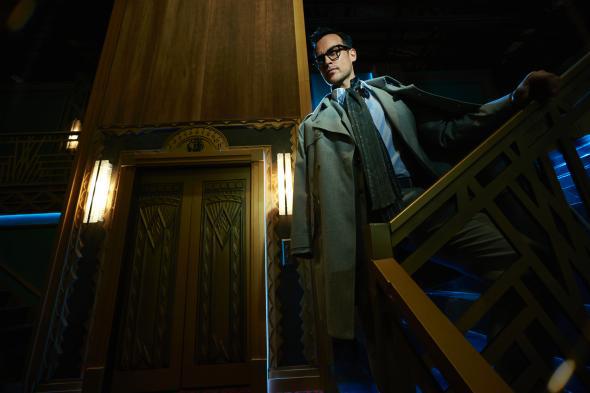A bisexual affair, teased as a salacious plot point featuring Lady Gaga’s dangerously sensual character the countess, was only the beginning for this “Hotel” season of American Horror Story. As in chapters past, this iteration of Murphy’s instant cult classic hosts a range of queer characters—with many of those characters setting their sights on lovers, refreshingly unconcerned with gender.
Indeed, sexual fluidity has been a major theme of the first half of the season. A scorned lover out for revenge, played by the iconic Angela Bassett, fell both for the countess and a man. Liz Taylor (Dennis O’Hare), a trans woman, was married to a woman before coming out; but after leaving that life to work in the Hotel Cortez’s bar, she finds herself in the arms of a young male model. Finally, NYC fashionisto Will Drake (Cheyenne Jackson)—who the show initially suggested was gay—later becomes infatuated with the countess as well.
Yet, despite all these fabulous depictions of queer desire, it was not until last week’s episode that a character actually said the word bisexual. In said episode, the countess and Drake planned to exchange wedding vows. During a pre-nuptial conversation between Drake and his son, the “B” word was used:
Son: I can’t believe you’re marrying a girl.
Drake: I’m going to be blunt—your father is bisexual. People think that word means something dirty, but it doesn’t. It means that I like men and I like women—equally. People don’t understand so they treat me like I’m weird. Or like I’m trying to hide something. Or that—
Son: —that you only like guys.Drake: Yeah something like that. And if you’re lucky, once in your life you find somebody who really understands you. I didn’t think somebody like that existed for me. Until I met the countess. She’s the one. And when you meet the one, you hold on tight and you never let go.
The interaction between Drake and his son was stunning. Not only did he use the word bisexual, he dispelled the pernicious myths that bisexuality is dirty and that bisexual men are actually gay—all the while showing it was his love for the countess, and not her gender, that mattered.
This may seem trivial: Do we really need the word bisexual to be uttered allowed for the character to be recognized for their bisexuality? Is this a case where actions could speak as loudly as words?
Unlike gay and trans depictions, bisexual characters rarely say the word bisexual in media. This lack of verbalization supports the misconception that bisexuals don’t exist or that bisexuality references a temporary behavior rather than a true identity. GLAAD’s annual Where We Are On TV report counts bisexual characterizations despite the majority of characters never using the word bisexual. Yet even if you include characters who exhibit bisexuality but don’t use the label, bisexuals are severely underrepresented in the culture. When bisexuals do get screen time, they fall into dangerous stereotypes. Bisexuals are written as confused, label-less, or “sexually promiscuous.” Usually, as the Atlantic rightly points out, bisexuals on TV are evil and manipulative. And while the other bisexual characters on AHS: Hotel certainly check the evil and manipulating boxes, Drake does not.
Drake’s character defies stereotypes while proudly claiming a word that has evaded other bisexual characters before him. This is an example of what can happen with television producers and writers get our community right.
